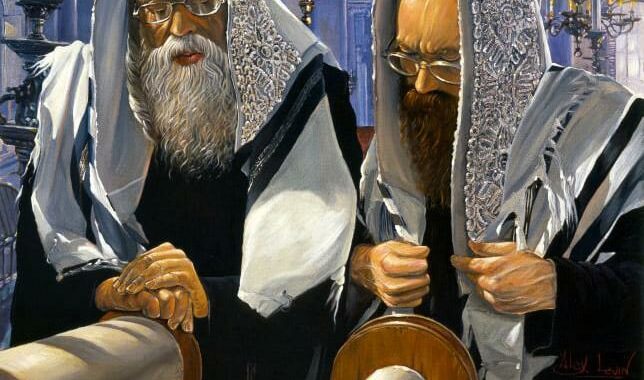Adapted from the writings of Dayan Yitzhak Grossman April 18, 2024 AP News reports: A…

Bais HaVaad on the Parsha, Parshas Tetzaveh-Zachor
Annual Remembership
Excerpted and adapted from a shiur by Rav Baruch Penfil
March 2, 2023
Remember what Amaleik did to you on the way, when you were leaving Mitzrayim.
Dvarim 25:17
Chazal mandated the annual reading of Parshas Zachor to fulfill the mitzvah of zechiras Amaleik. The Magen Avraham (O.C. 60) asks why a special krias haTorah was instituted for zechiras Amaleik and not for the five other mitzvos zechirah: remembering yetzias Mitzrayim, matan Torah, the eigel hazahav, Miriam’s lashon hara, and Shabbos.
The Magen Avraham answers that we already remember matan Torah on Shavuos, yetzias Mitzrayim on Pesach, and Shabbos every week. Miriam’s story and the eigel hazahav, on the other hand, don’t have their own readings because they are incidents of genai (shame).
There are two ways to understand the Magen Avraham. The Machatzis Hashekel says the Magen Avraham assumed in his question that we fulfill all six mitzvos de’Oreisa of zechirah once a year when we read them in the regular krias haTorah. His question was why Chazal instituted an additional krias haTorah for Amaleik but not for the others, and his answer is that some do have an additional reading, but Chazal did not institute special readings for matters that relate to aveiros.
Another possible understanding of the Magen Avraham is that all the mitzvos of zechirah apply daily.[1] (The Rambam (Melachim 5) appears to refer to remembering Amaleik as a mitzvah temidis.) The Magen Avraham is asking why there is an additional yearly krias haTorah for zechiras Amaleik alone, and he answers that in fact there is one for those zechiros that do not invoke genai.
[1] See the Arizal (cited by the Magen Avraham) who says that one should have these mitzvos in mind each day when reciting specific words in Ahavah Rabah. The Magen Avraham writes this explicitly in his pirush on the Sifra (Zayis Ra’anan, Parshas Bechukosai).





